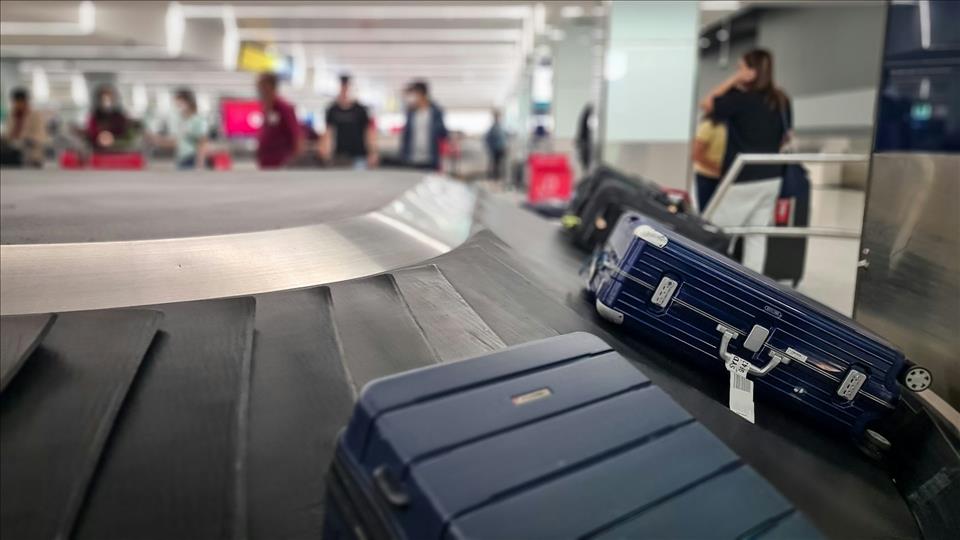
Even After The Government's Crackdown, Australia Will Lag Behind On Flyers' Rights
The limited protections we do have rely heavily on the general Australian Consumer Law . The“consumer guarantees” provided in this law only require services to be delivered in the arguably vague framework of a“reasonable time”.
That might be okay if we're just getting a sofa delivered from a furniture retailer. The cost of a late delivery is low.
But these guarantees were not tailored to the unique impacts delayed or cancelled flights can have on travellers. Australia's lack of aviation-specific protections has long been a severe pain point for flyers, only heightened by pandemic disruption.
The government's much-awaited Aviation White Paper , released in full on Monday, promised to address this issue. At the heart of the reforms, Australia will get a new aviation ombud scheme, and a new charter of customer rights for passengers.
The recognition that new protections are needed is a step in the right direction. But this once-in-a-generation white paper missed the chance to achieve far more, by moving Australia to the style of consumer protection that have now been offered for 20 years in Europe .
Why is air travel unique?Airline customers have a reasonable expectation of arriving at their destination, at (or close to) the time published by the airline in its schedule at the time the reservation was paid and ticketed.
If this can't be achieved, they should at least arrive at some amended time that was advised far enough in advance to allow related reservations and bookings to be adjusted.
There are no timely substitutes for flying. Seth Jaworski
Air travel has to be punctual because it doesn't have any substitutes. On even a modest deadline, driving from Perth or even Sydney to Melbourne, for example, is not a comparable option.
And a passenger's options to adapt their travel plans diminish as the departure date approaches. In the final days before travel, hotel cancellation deadlines pass and alternative connecting flight options sell out or spike in price.
In some cases, travelling to a specific event can become pointless for a passenger if a delay is lengthy enough.
Australia is playing catch-upIn contrast with Australia, aviation-specific protections have long existed in many other developed economies.
In the European Union (EU), for example, regulations make clear that airlines have specific obligations and responsibilities in the event of delays, cancellations and denied boardings. This includes the right to compensation of up to €600 (A$988).
These protections and the levels of compensation payable for failure to meet specified requirements for different kinds of flights are comprehensively legislated.
Canada has a slightly different approach – smaller regional carriers have different obligations to mainline operators. But as with the European regulation, it imposes an obligation to get the passenger to the ticketed destination, or to refund the ticket if the journey has become pointless.
The absence of such legislated protections in Australia means we typically have to rely on the goodwill of the airline when things go wrong.
Real action has been delayedThe centrepiece proposal of the white paper is to create a new ombud scheme with“the power to direct airlines and airports to provide remedies to consumers and investigate customer complaints about airlines' and airports' conduct”. This will replace the existing Airline Customer Advocate .
A new charter of customer rights, to be produced by the scheme, will aim to give flyers“greater certainty about what they can expect when flights are cancelled and delayed” and require airlines to be more transparent about their performance.
Read more: Airline 'customer rights charter' to specify when cash refunds required
The white paper noted the poor on-time performance of Australian carriers. It also pointed out that the Australian Competition and Consumer Commission identified problems with consumer protections for air travel in Australia as far back as 2017. But its proposals offer no real quantifiable or enforceable improvements to consumer rights.
Despite the well-established models in comparable countries – many of which have followed the EU's lead – Australians will need to wait for yet another discussion process to be complete before they see what protections may eventually be introduced.
Consumer protections should extend to the knock-on effects of missing a flight. DC Studio/Shutterstock
The government's white paper has largely just kicked the can down the road.
At a minimum, passengers on Australian carriers deserve the assurances given to those travelling in and from Europe: in the event of a cancellation or long delay, that they will be transported to their destination on an alternative flight as quickly as possible.
They should also be given appropriate meals and accommodation until they can make this onward journey, receive compensation for lengthy delays, and have the option to return home with a full refund if their travel has become pointless.

Legal Disclaimer:
MENAFN provides the
information “as is” without warranty of any kind. We do not accept
any responsibility or liability for the accuracy, content, images,
videos, licenses, completeness, legality, or reliability of the information
contained in this article. If you have any complaints or copyright
issues related to this article, kindly contact the provider above.


















Comments
No comment